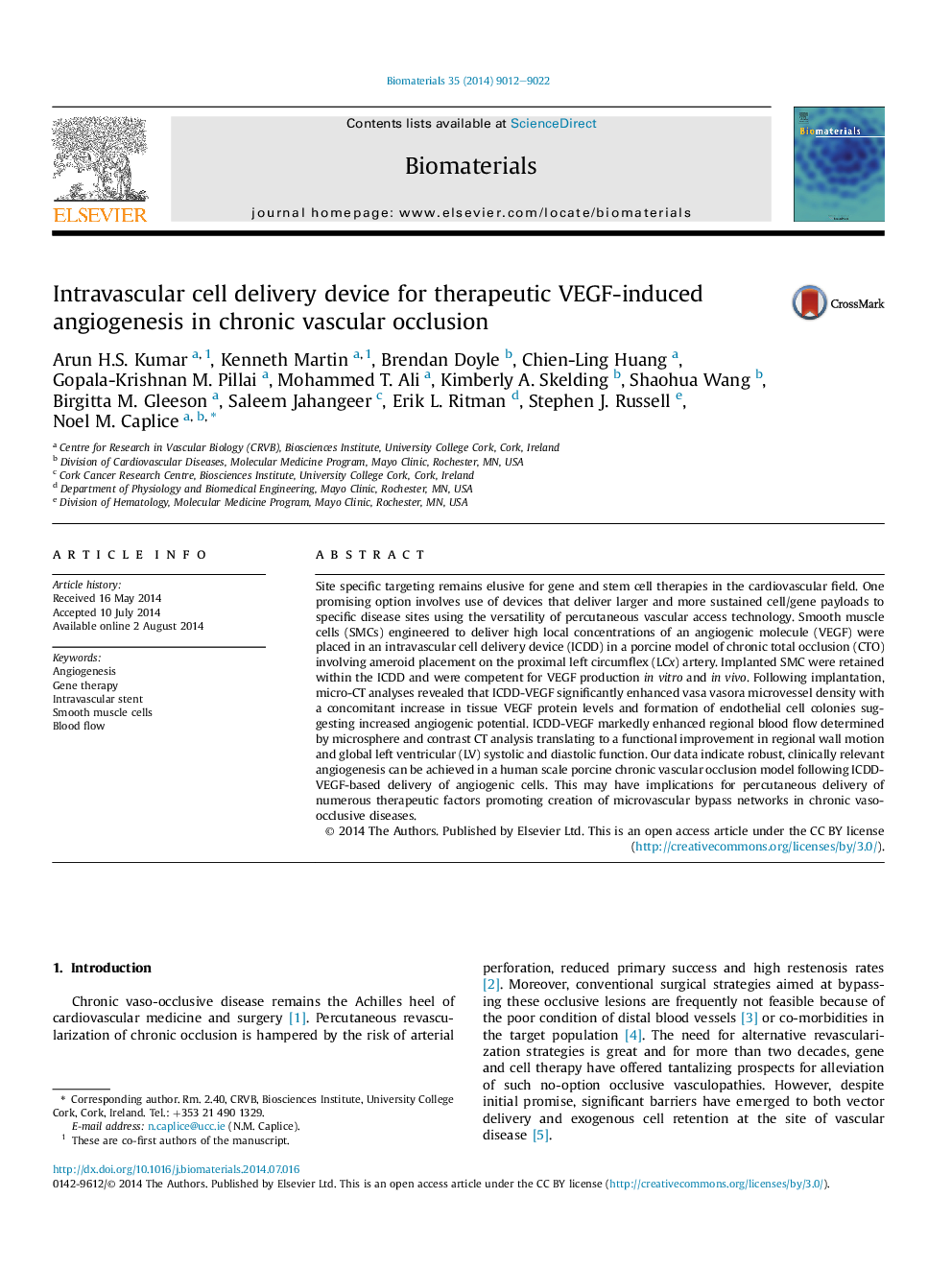| Article ID | Journal | Published Year | Pages | File Type |
|---|---|---|---|---|
| 10227323 | Biomaterials | 2014 | 11 Pages |
Abstract
Site specific targeting remains elusive for gene and stem cell therapies in the cardiovascular field. One promising option involves use of devices that deliver larger and more sustained cell/gene payloads to specific disease sites using the versatility of percutaneous vascular access technology. Smooth muscle cells (SMCs) engineered to deliver high local concentrations of an angiogenic molecule (VEGF) were placed in an intravascular cell delivery device (ICDD) in a porcine model of chronic total occlusion (CTO) involving ameroid placement on the proximal left circumflex (LCx) artery. Implanted SMC were retained within the ICDD and were competent for VEGF production in vitro and in vivo. Following implantation, micro-CT analyses revealed that ICDD-VEGF significantly enhanced vasa vasora microvessel density with a concomitant increase in tissue VEGF protein levels and formation of endothelial cell colonies suggesting increased angiogenic potential. ICDD-VEGF markedly enhanced regional blood flow determined by microsphere and contrast CT analysis translating to a functional improvement in regional wall motion and global left ventricular (LV) systolic and diastolic function. Our data indicate robust, clinically relevant angiogenesis can be achieved in a human scale porcine chronic vascular occlusion model following ICDD-VEGF-based delivery of angiogenic cells. This may have implications for percutaneous delivery of numerous therapeutic factors promoting creation of microvascular bypass networks in chronic vaso-occlusive diseases.
Related Topics
Physical Sciences and Engineering
Chemical Engineering
Bioengineering
Authors
Arun H.S. Kumar, Kenneth Martin, Brendan Doyle, Chien-Ling Huang, Gopala-Krishnan M. Pillai, Mohammed T. Ali, Kimberly A. Skelding, Shaohua Wang, Birgitta M. Gleeson, Saleem Jahangeer, Erik L. Ritman, Stephen J. Russell, Noel M. Caplice,
